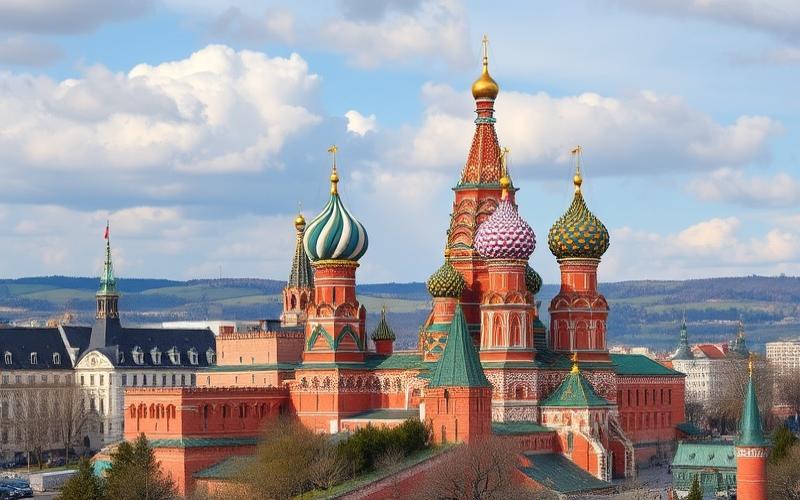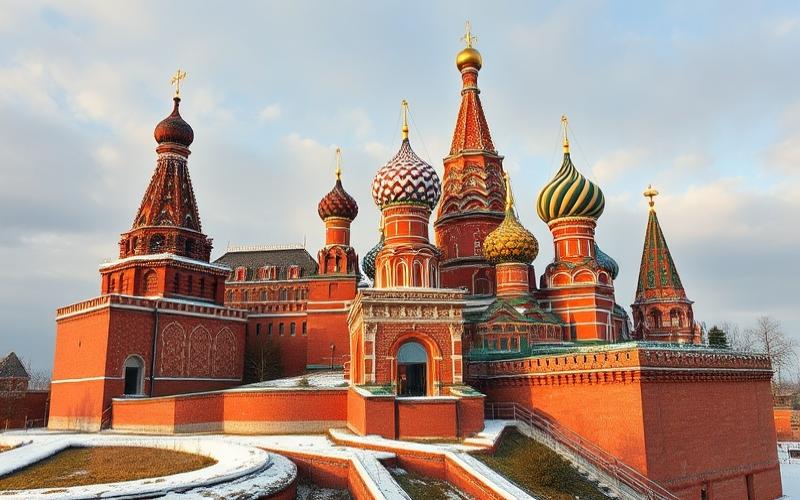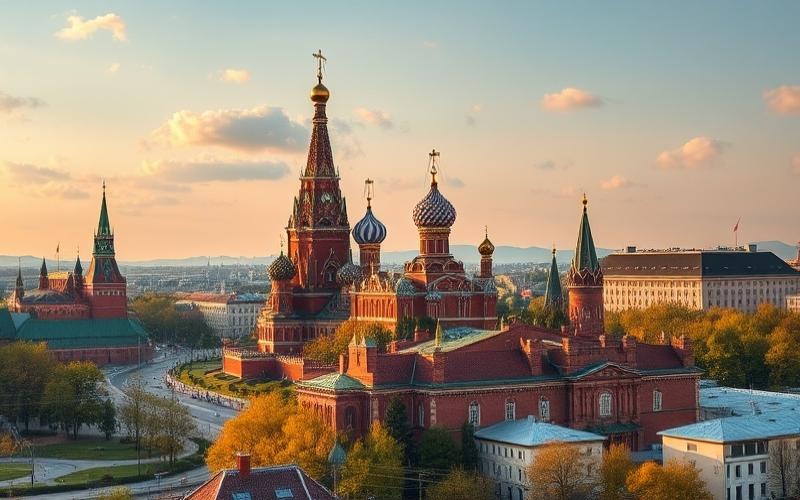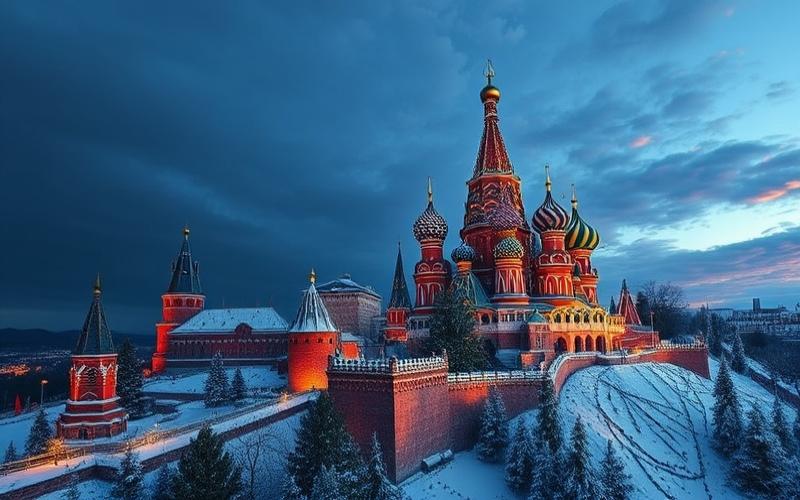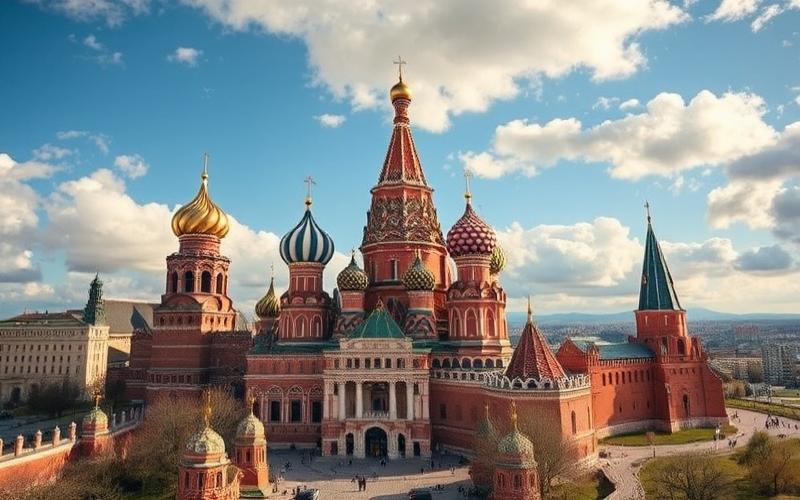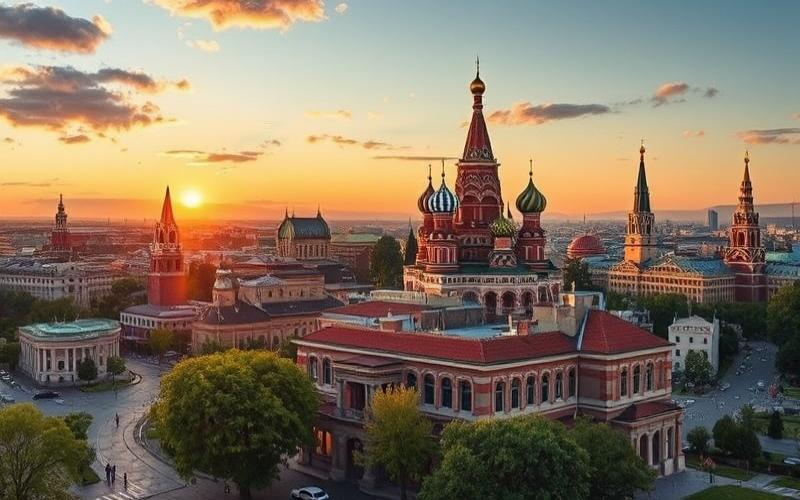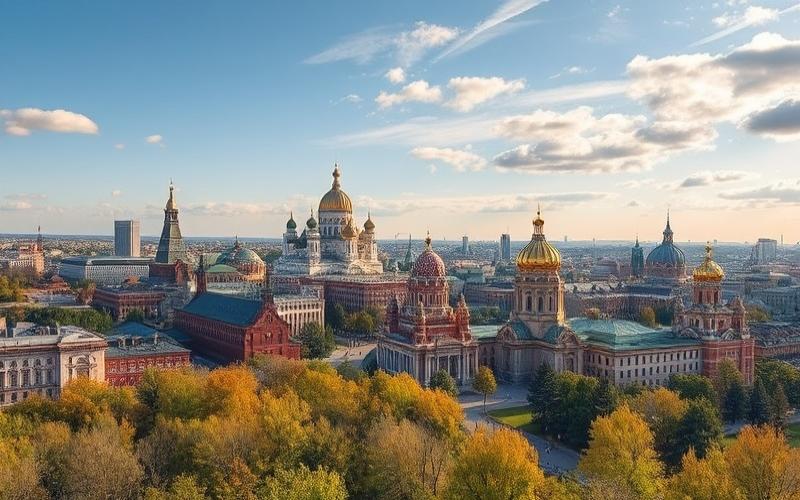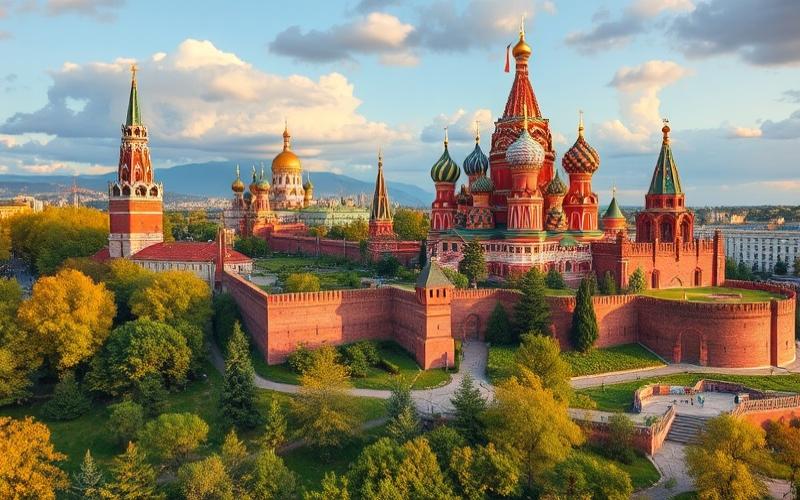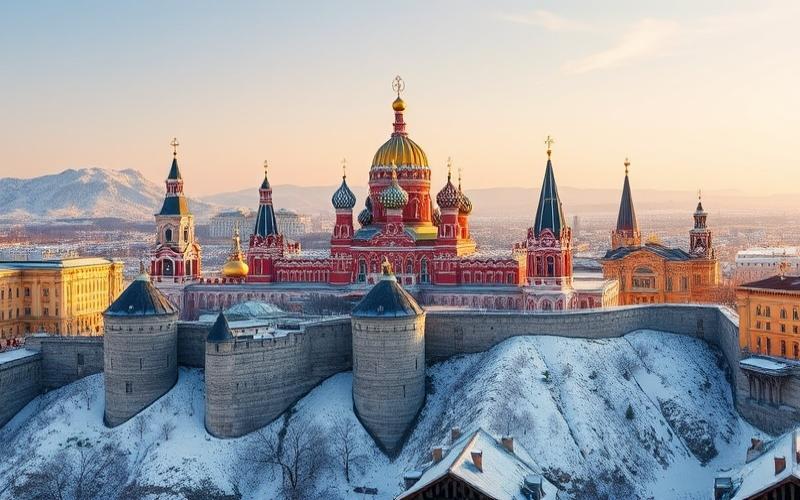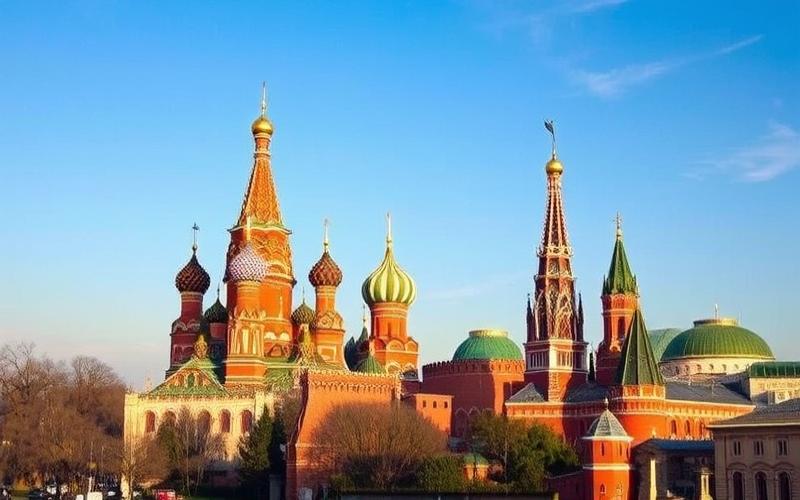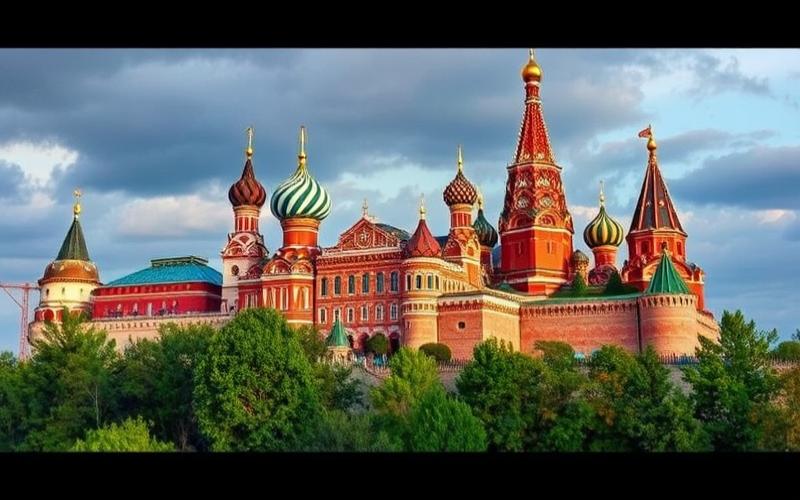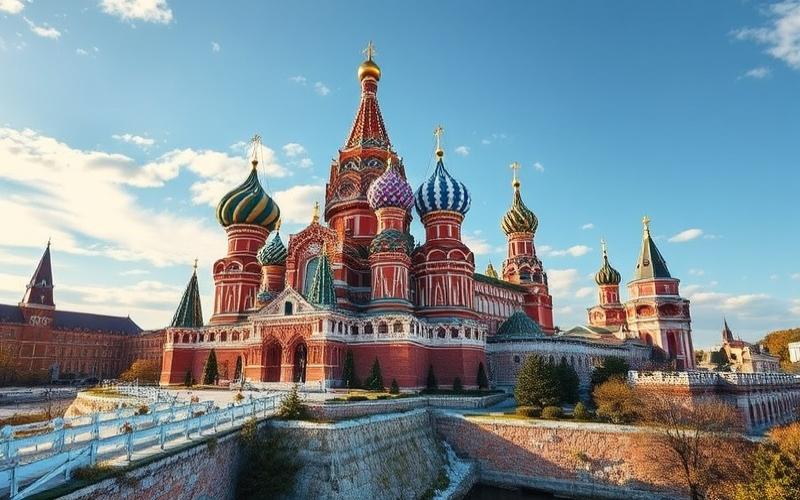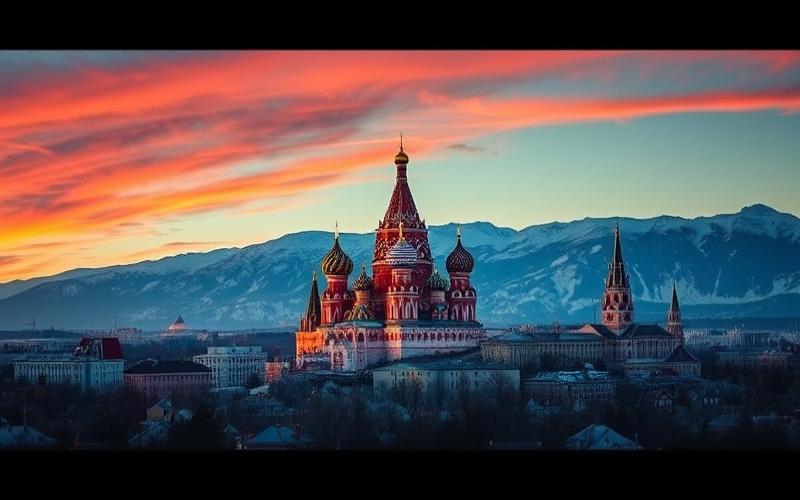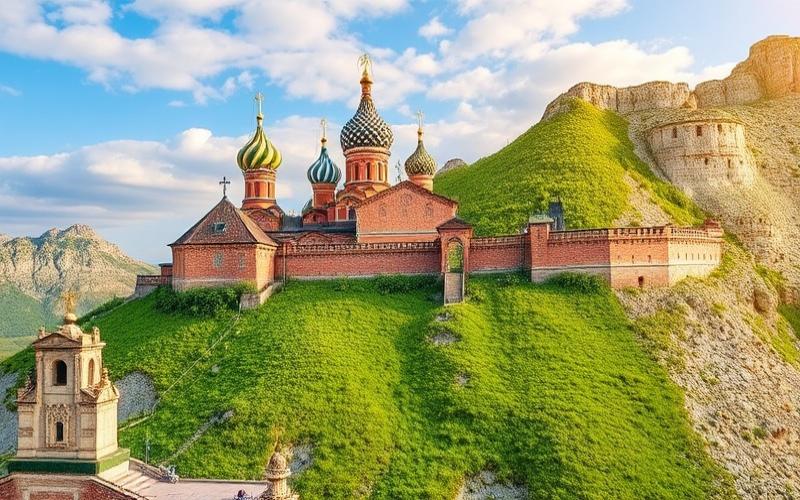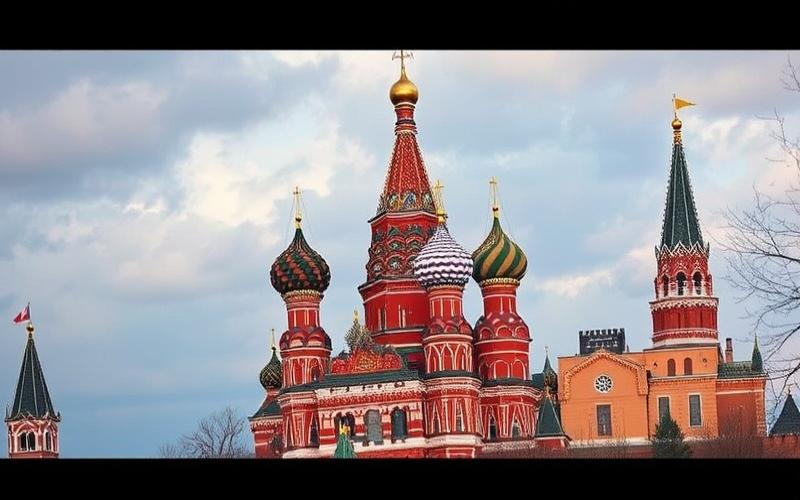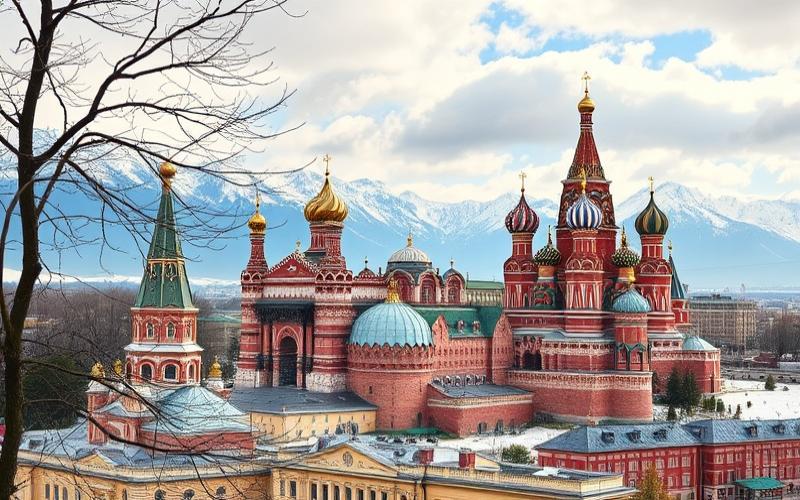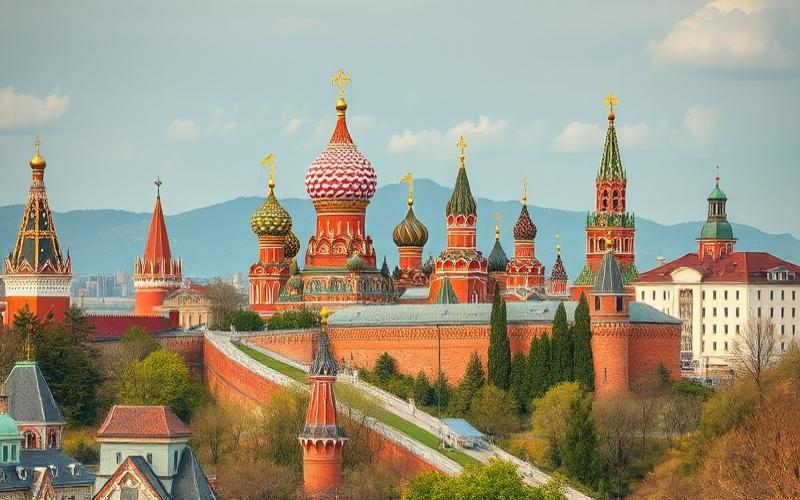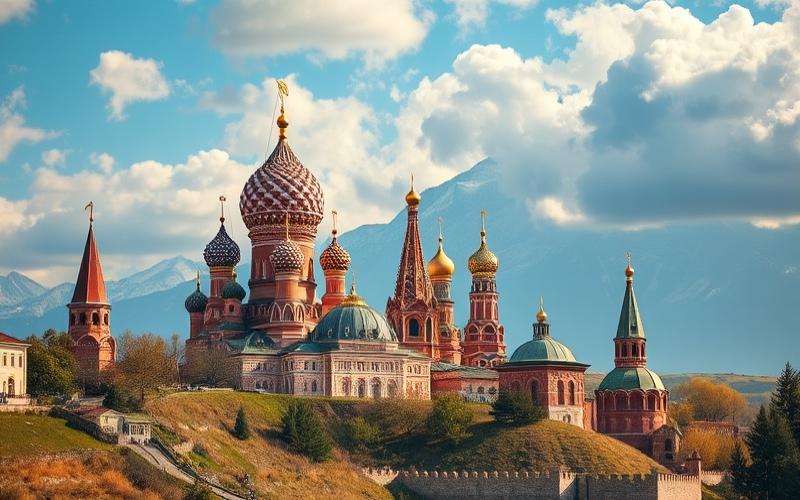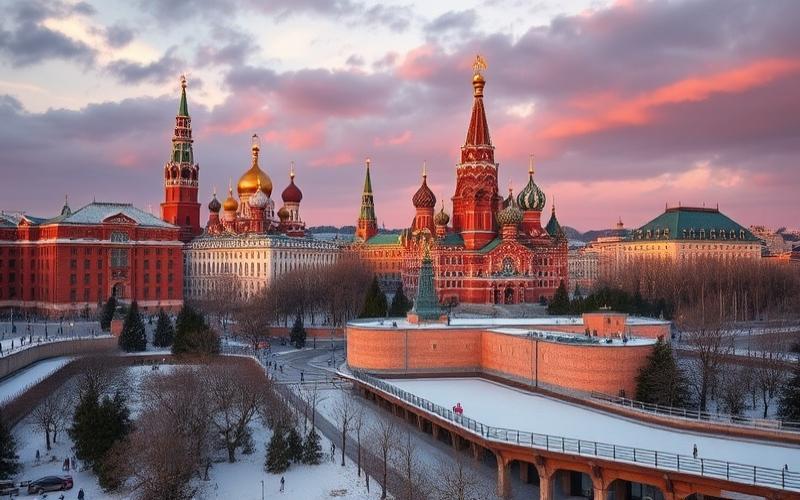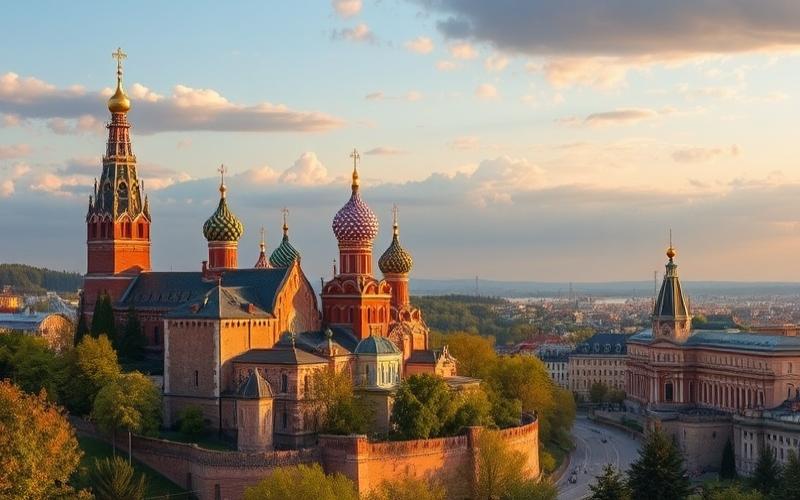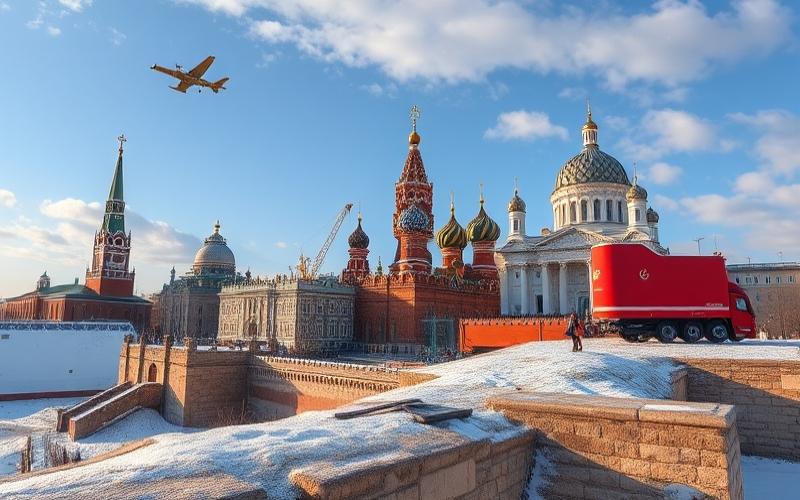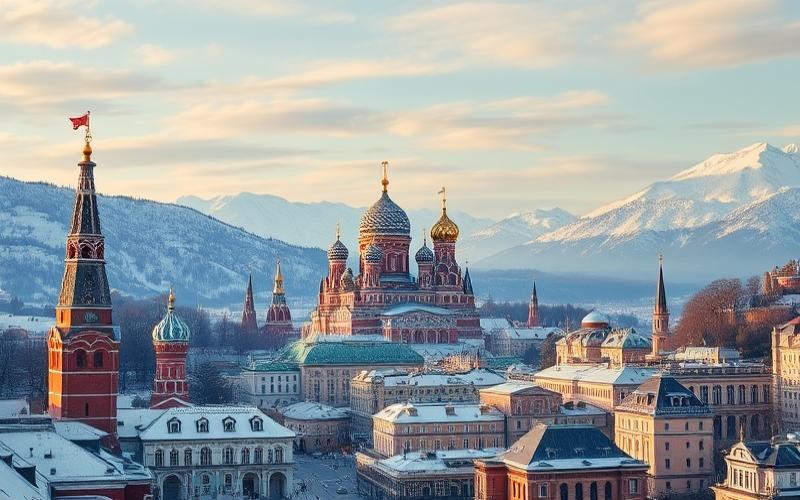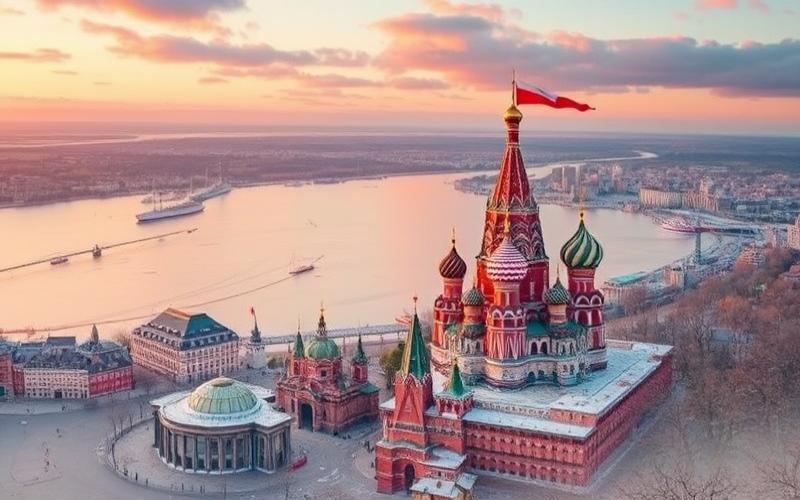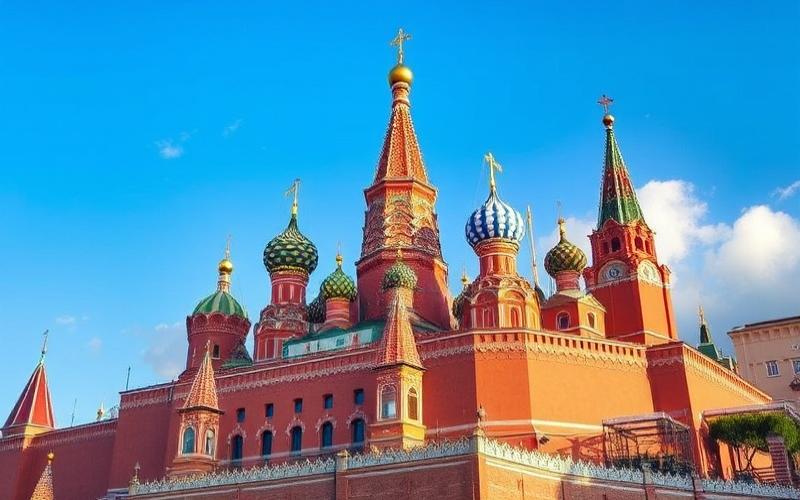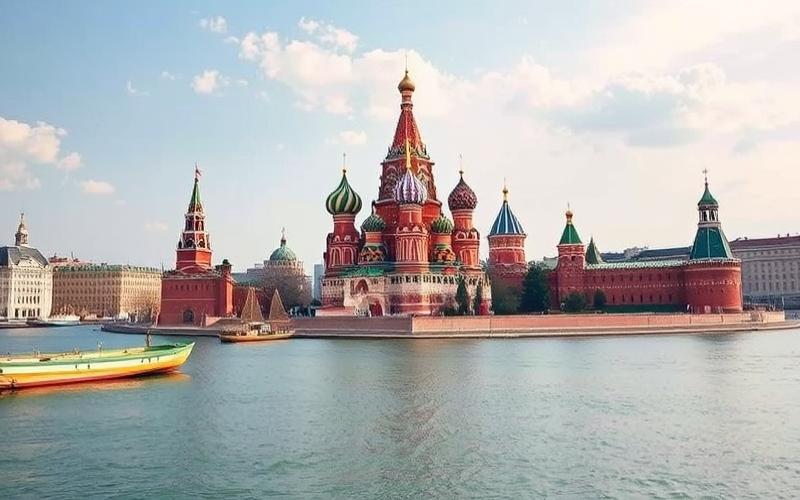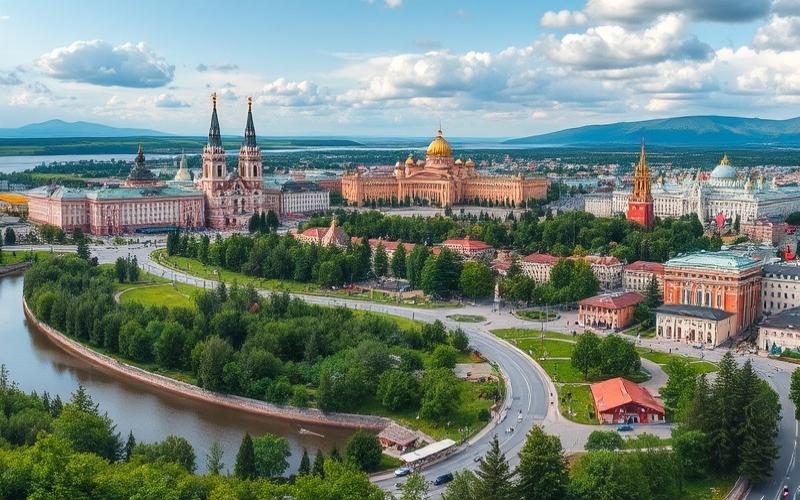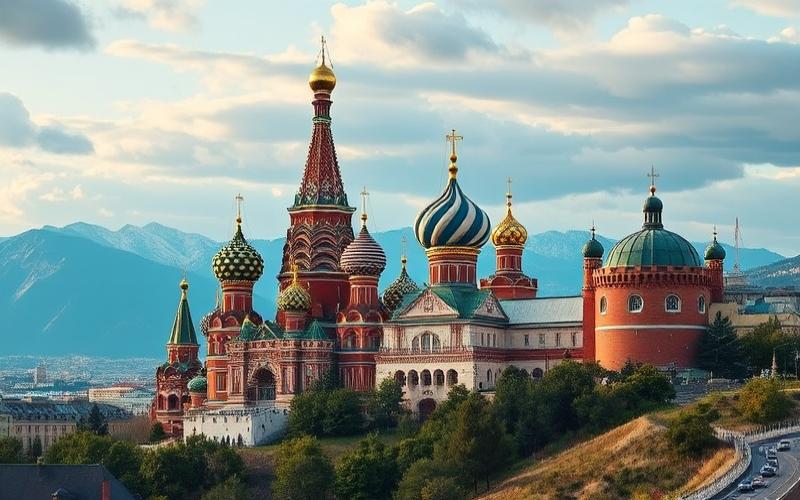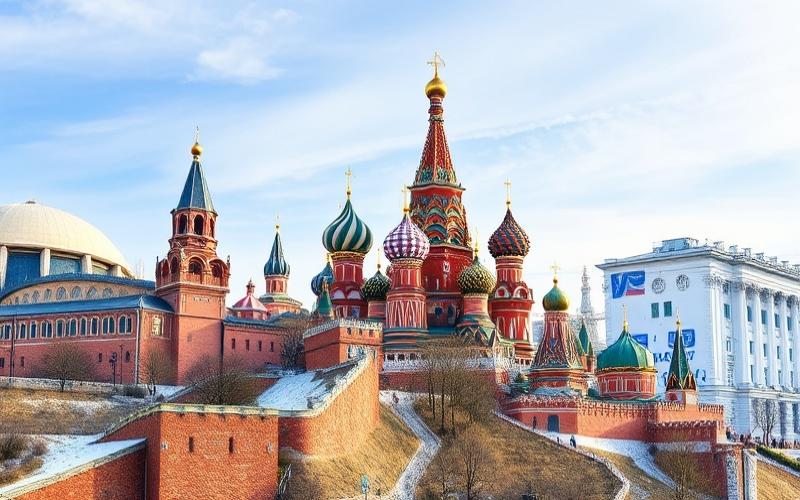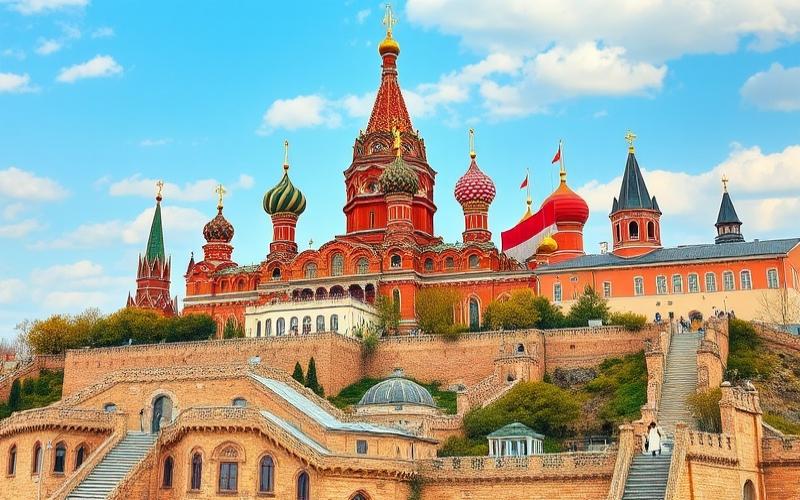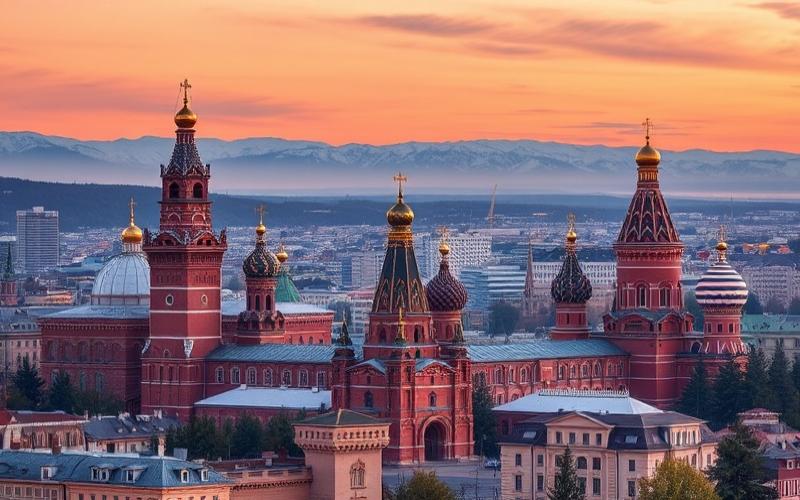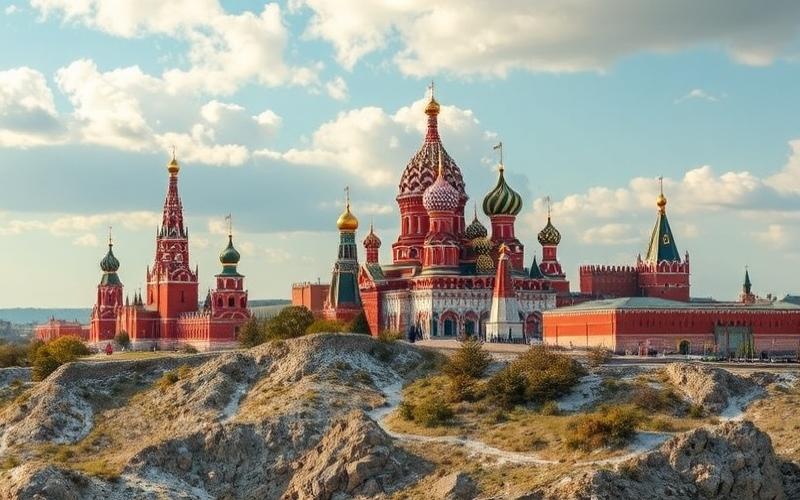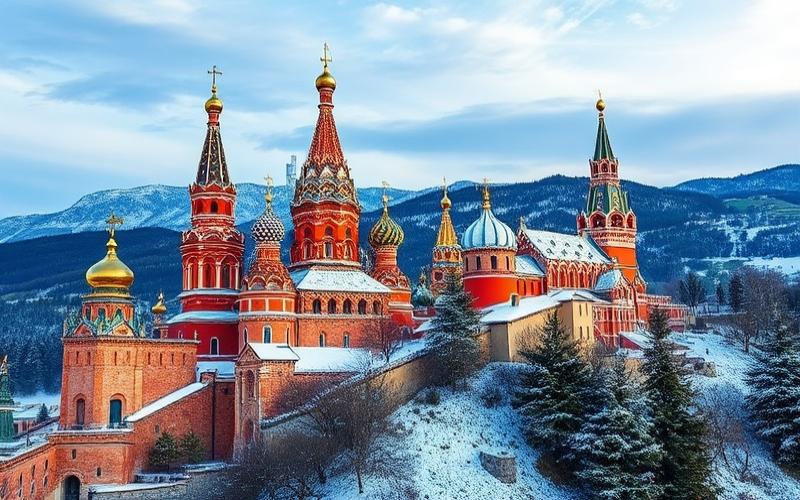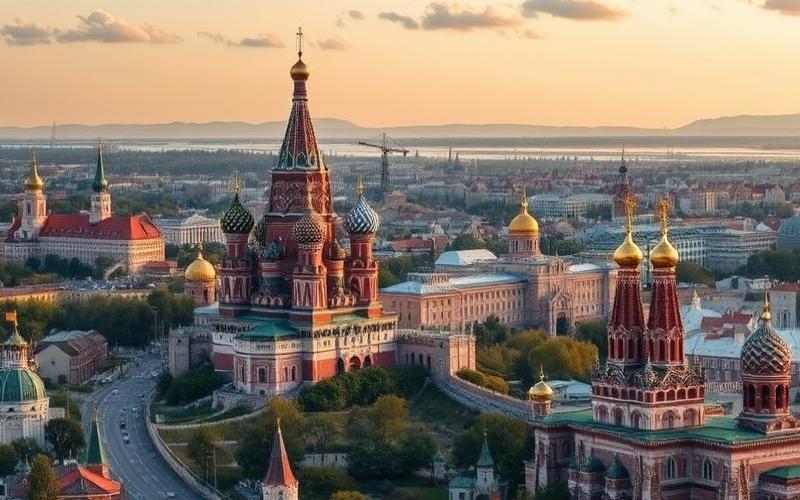
 Published on and written by Cyril Jarnias
Published on and written by Cyril Jarnias
Russia’s appeal, with its vast economic opportunities and strategic position between Europe and Asia, continues to intrigue entrepreneurs seeking to expand their business horizons. However, establishing oneself as an expatriate and starting a business in this country can prove to be a complex challenge to overcome.
This practical guide will accompany you through this process, addressing crucial points such as understanding the legal framework, the cultural aspects that influence business, as well as essential advice for aligning with local business practices.
Whether you wish to invest in booming sectors or take advantage of Russia’s numerous natural resources, this article will provide you with the necessary keys to transform your entrepreneurial ambition into an undeniable success.
Understanding Legal Structures for Starting a Business in Russia
| Legal Structure | Partners’ Liability | Minimum Share Capital | Administrative Formalities | Tax Obligations (2025) | Advantages/Disadvantages for Foreigners |
|---|---|---|---|---|---|
| LLC (Limited Liability Company) | Limited to the amount of contributions. Partners are not liable with their personal assets. | 10,000 RUB (~€100) 50% paid upon registration, balance within one year. | Articles of Association, signature specimens, registered office, Russian bank account, translated and notarized documents. Registration with social and medical funds mandatory. Annual board meeting required. | Corporate tax rate: 25% starting 2025. Possible deductions depending on sectors (e.g., IT). Reduced rate for local tech companies. Quarterly or annual tax returns depending on activity. | Management flexibility. Preferred structure for SMEs/foreign entrepreneurs. Less flexible law than in Western Europe; shareholder agreement recommended outside Russia to secure rights in case of international joint venture. Market access may require a local partnership or the creation of a joint venture according to recent legislation. |
| JSC (Joint Stock Company) | Liability limited to the amount of contributions. Suited for projects with multiple shareholders. Two variants: Public JSC (publicly tradable shares), Private JSC (non-listed shares). | Higher minimum share capital than LLC (often ≥ 100,000 RUB). | Similar but more restrictive formalities: obligation to publish certain financial reports, regulated operation. | Taxation identical to LLCs (25% starting 2025); specific modalities in case of public offering. | Main advantage: better protection and regulation of shareholder rights; major drawback for foreign entrepreneurs = increased complexity and low flexibility of Russian law. |
| IE (Individual Entrepreneur) | Unlimited liability: personal assets at risk in case of debts. | No share capital required. | Simplified procedure: declaration to the local tax register, possible opening of a business bank account. | Possible simplified tax regime (“patent” or flat-rate system), taxation generally between 6% and 15% depending on turnover and type of activity; no separation of private/professional assets unless a separate commercial company is later created. | Ideal for independent activities/services/freelance but high risks. |
Practical tip: prefer a JSC if multiple external investors are involved or if rapid growth through fundraising is planned.
Practical tip: structure suited for very small activities or starting alone without immediate prospect of international development.
Recent Specificities & Legislation Affecting Expatriates
- Since the gradual return of international investments to Russia, the law now encourages more joint creation with Russian partners; increased obligations concerning:
- Technology transfer
- Local R&D creation
- Co-ownership in certain sectors deemed strategic
- Foreign companies should expect:
- Complete absence of specific tax “benefits”
- Enhanced control during the initial process through prior consultation with local players already present in the market
- International sanctions that may affect banking access/optimal legal location
Practical Tips for Choosing the Right Structure
Identify your main needs before any legal choice:
- If you wish to limit your personal risk while maintaining flexible management → prefer the LLC
- To quickly raise funds from various investors → opt instead for a JSC
- To easily test an individual project without quickly incurring legal fees → start as an IE, then convert if necessary
- If you are a foreigner:
- Prepare to provide all official/notarized translations;
- Plan for a local partner/accountant;
- Carefully study any sectoral restrictions related to sanctions;
- Protect your interests through agreements/shareholding outside Russia if joint venture.
Summary List — Key Points Before Incorporation:
- Check authorized sector / restrictions related to international sanctions
- Calculate minimum required capital / actual financial capacity
- Anticipate specific regional social/tax obligations
- Secure your rights through written contracts/agreements outside Russian jurisdiction if multi-shareholder
- Seek advice from accredited local specialists
Good to Know:
LLCs, popular for their limited liability and minimum capital deposit, require rigorous tax monitoring, while IEs offer simplicity but full personal liability; for expatriates, the LLC is often recommended despite more complex administrative rules, facilitated by recent legislative relaxations.
To create a sustainably competitive business in Russia today, primarily opt for the LLC to limit your personal risks, while carefully preparing your administrative file and tax strategy in the evolving post-sanctions context.
Administrative Procedures and Tax Considerations for Expatriates
To obtain a business visa or a work permit in Russia, a precise procedure must be followed and specific documents provided. Processing times vary depending on the type of visa and the urgency of processing.
Steps to Obtain a Business Visa or Work Permit:
- Preparation of required documents:
- Passport valid for at least 6 months after the visa end date, with two blank pages.
- Official form filled out online and printed.
- Recent ID photo (4.5 x 3.5 cm format).
- Medical insurance covering the entire stay period.
- Business invitation letter issued by a Russian organization.
- Submission of the file to the Russian consulate (mandatory by appointment at one of the authorized consulates in France).
- Administrative follow-up: mandatory registration with local authorities within 7 working days following arrival if the stay exceeds this duration.
| Visa Type | Standard Processing Time | Urgent Processing Time | Main Documents |
|---|---|---|---|
| Standard Business | ~9 working days | ~4 working days | Passport, business invitation, insurance, form |
| E-Visa | Up to 120 days* | Response within 4 days | Digital passport, digital photo |
*Maximum validity for e-visa extended starting August 2025.
Legal Structures for Starting a Business in Russia:
- LLC (Limited Liability Company)
- Private/Public JSC – Closed/Public Joint Stock Company
- Individual Entrepreneur
- Representative Office or Foreign Branch
| Structure | Liability | Main Taxation |
|---|---|---|
| LLC | Limited to contributions | Corporate Tax at fixed rate |
| Private/Public JSC | Shareholders | Corporate Tax + stock market obligations |
| Individual Ent. | Unlimited | Income Tax |
| Representative Office | According to parent company | Subject to local/international regime |
Tax Implications for Expatriate Entrepreneurs:
- Profit tax (Corporate Tax) generally between 15% and 20% depending on the chosen regime
- VAT applicable on most commercial activities (standard rate around 20%)
- Mandatory social contributions if hiring locally
- Personal income tax may apply to resident expatriate managers
Applicable Local Taxes:
Non-exhaustive list:
- Property tax if real estate ownership
- Municipal professional tax depending on activity
- Employer social contributions
Recommended Tax Optimization Strategies:
- Use international conventions against double taxation
- Choose wisely between individual structure or company according to tax profile
- Outsource certain functions to foreign subsidiaries when possible
- Use local expertise to adapt accounting to Russian standards
Always consult a local legal or tax advisor to ensure your compliance with Russian legislation which evolves regularly.
Practical Tips to Facilitate Administrative Integration:
- Register quickly with local authorities after arrival (“migration registration”)
- Get assistance from a specialized agency during complex bureaucratic procedures
- Officially translate all important documents upon their arrival in Russia
- Centralize administrative exchanges through a single point of contact when possible
Useful List:
- Allow sufficient time before each administrative deadline
- Keep digital/scanned copies accessible everywhere
- Make appointments early at Russian consulates—requests sometimes saturated
Always prioritize collaboration with local experts to avoid any dispute or penalty related to non-compliance with Russian administrative and tax rules.
Good to Know:
To obtain a business visa or work permit in Russia, prepare your passport, an invitation letter from your future company, a medical certificate, and fill out the online form, anticipating a processing time that can extend to several weeks; also inquire about standard types of companies such as LLC or IE, each with its specific tax implications, and consult a local advisor to avoid administrative pitfalls and optimize your taxation.
Accessing Funding and Developing Your Network in Russia
Funding Sources for Foreign Entrepreneurs in Russia
| Funding Type | Description | Eligibility Criteria | Access Process |
|---|---|---|---|
| Russian Banks | Commercial loans, credit lines, investment credits | Creditworthiness, guarantees, business plan, local registration | Submission of a complete file, risk analysis |
| Private Investors | Business angels, venture capital funds, local or foreign industrial partners | Growth potential, innovation, professional network | Project presentation, negotiation, due diligence |
| Government Programs | Grants, tax relief, access to Special Economic Zones (SEZ), preferential loans | Priority sectors (tech, production, agriculture), registration in Russia, business plan | Application to state agencies, audit, validation |
| Professional Associations | Logistical support, access to pooled funds, administrative assistance | Membership, proven activity in Russia | Registration, active participation |
Examples of specific programs:
- Grants for purchasing agricultural or industrial equipment
- Reduced tax rate in SEZs (up to 0%–13.5%)
- Access to preferential loans for innovative projects or import substitution
Eligibility Criteria and Process
- Solid business plan demonstrating fit with the Russian market
- Legal registration of the company in Russia (IE/LLC)
- Minimum investment (e.g., 15 million rubles for socially important projects or 30 million in an existing company for certain benefits)
- Complete administrative file (articles of association, proof of funds, business residence permit if necessary)
- Sector suitability (some aids target technology, agri-food, industrial production)
Practical Tips for Developing Your Professional Network
- Participate in local events: trade shows, sector forums, conferences (e.g., Future Technologies Forum in Moscow)
- Join professional associations: for example, the Association of European Businesses in Moscow, bringing together over 300 foreign companies
- Use online networking platforms: LinkedIn, Telegram, Facebook groups specialized in entrepreneurship in Russia
- Collaborate with local incubators and clusters to facilitate integration and access to the innovation ecosystem
- Seek advice from firms specialized in supporting foreign entrepreneurs
Cultural and Administrative Challenges for Expatriates
| Challenge | Explanation | Solutions/Recommendations |
|---|---|---|
| Language Barrier | Russian essential in administration and daily business | Work with translators, recruit local staff |
| Administrative Complexity | Registration, visa procedures, high documentary requirements | Rely on local firms, anticipate delays |
| Evolving Regulatory Context | Frequent changes in foreign investment rules, sanctions, additional requirements | Stay informed via professional associations, law firms |
| Specific Business Culture | Importance of network, recommendations, and personal trust | Multiply in-person meetings, prioritize patience and perseverance |
| Sanctions and Banking Restrictions | Difficulty accessing certain funding, limitation of international transfers | Use Russian banks, explore partnerships with Asian or local players |
⚠️ Cultural adaptation, building a strong network, and regular administrative monitoring are essential success factors for foreign entrepreneurs in Russia.
Additional Practical Tips:
- Regularly inform yourself about regulatory developments
- Prepare an impeccable administrative file
- Prioritize sectors benefiting from grants and tax incentives
- Invest in learning Russian or recruit bilingual staff
- Value cooperation with Russian partners to strengthen local legitimacy
Good to Know:
Foreign entrepreneurs in Russia can explore funding through local banks, attract private investors, or apply to government programs designed to support startups, while actively participating in local economic events to expand their professional network despite the encountered administrative and cultural challenges.
Adapting to Cultural Differences and Available Support Resources
Understanding the cultural traits specific to Russia is fundamental to successfully establishing or collaborating professionally in this market.
Main Cultural Traits to Consider:
Communication Styles
- Communication is often more direct and less emotional than in Western Europe.
- Russians may appear cold or distant, especially during initial exchanges; they rarely smile without a professional reason.
- Professional exchanges can quickly become very personal once the relationship is established.
- Russians place great importance on keeping one’s word and honor.
Hierarchical Structures
- Russian companies are generally very hierarchical and access to executives is limited.
- Decisions are often made at the top, which can slow down certain processes.
- Departments are compartmentalized, and teamwork occurs mainly within the same group.
Importance of Personal Relationships
- Trust-based relationships are essential for doing business.
- Gifts or attentions are common and facilitate relationship building.
- It is common to use personal networks to initiate partnerships or obtain information.
Main Cultural Obstacles for Expatriate Entrepreneurs:
- Language barrier and difficulty understanding implicit codes.
- Difficulty accessing decision-makers due to strict hierarchical structure.
- Tendency to prioritize short-term results, which may clash with partners accustomed to a more long-term vision.
- Risk of misunderstanding due to communication perceived as cold or impersonal.
- Initial distrust towards foreigners and necessity to prove one’s loyalty and competence.
Practical Strategies to Overcome These Challenges:
- Learn some basics of Russian or use an interpreter during initial meetings.
- Demonstrate patience and perseverance in building relationships.
- Offer small gifts during important meetings to show respect for local customs.
- Adapt to the hierarchy: address requests to the right people and do not force direct contact with management without prior introduction.
- Take time to participate in informal events to strengthen trust.
Resources Available for Foreign Entrepreneurs:
| Resource | Description |
|---|---|
| Local Chambers of Commerce | Provide advice, networking events, and connections with experts and partners. |
| Entrepreneur Associations | Promote integration, exchange of best practices, and access to experienced mentors. |
| Specialized Consulting Services | Assist with administrative procedures, obtaining licenses, and understanding the local market. |
Networking Opportunities:
- Participation in professional trade shows and sector fairs.
- Membership in international business clubs (for example, the British Business Club or the Franco-Russian Chamber of Commerce).
- Events organized by embassies, consulates, or cultural institutes.
- Online platforms dedicated to entrepreneurship and groups on professional social networks.
Key Takeaways:
Understanding and respecting Russian cultural codes, relying on local resources, and investing in the development of personal relationships are essential keys to integrating and succeeding in the Russian entrepreneurial ecosystem.
Good to Know:
Understanding Russian cultural nuances, such as the value of personal relationships and communication styles, is paramount; resources like local chambers of commerce and women entrepreneur networks can offer valuable support. Consider participating in networking events to build connections and integrate specialized consulting services to facilitate your procedures.
Disclaimer: The information provided on this website is for informational purposes only and does not constitute financial, legal, or professional advice. We encourage you to consult qualified experts before making any investment, real estate, or expatriation decisions. Although we strive to maintain up-to-date and accurate information, we do not guarantee the completeness, accuracy, or timeliness of the proposed content. As investment and expatriation involve risks, we disclaim any liability for potential losses or damages arising from the use of this site. Your use of this site confirms your acceptance of these terms and your understanding of the associated risks.

